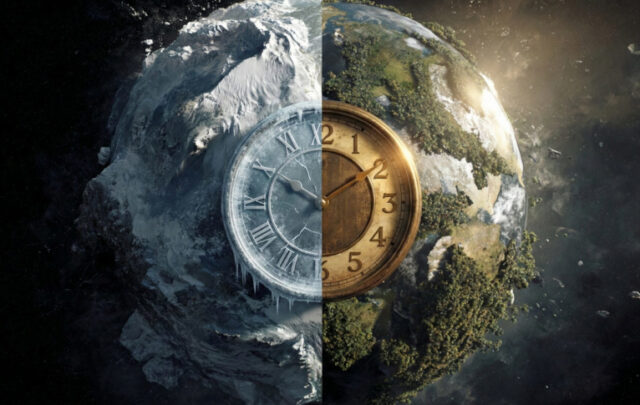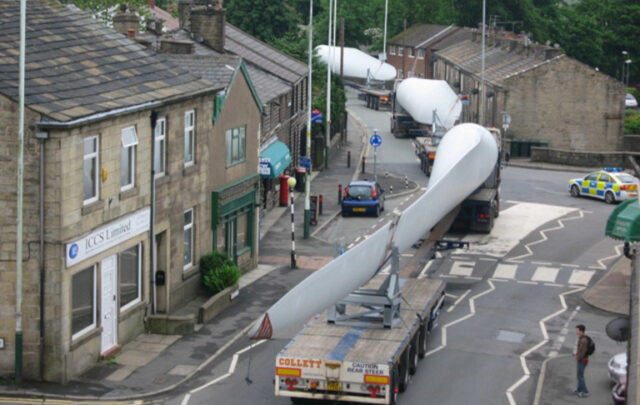This article was published by the Center for American Progress Action. (reuse policy)
 MELBOURNE, Australia — Since coming to Australia almost two months ago I’ve heard about Clive Hamilton in the process of reporting just about every story I’ve done. Then I picked up his new book Earthmasters: The Dawn of the Age of Climate Engineering and now I see what all the fuss is about.
MELBOURNE, Australia — Since coming to Australia almost two months ago I’ve heard about Clive Hamilton in the process of reporting just about every story I’ve done. Then I picked up his new book Earthmasters: The Dawn of the Age of Climate Engineering and now I see what all the fuss is about.
In all of the debates over how to address climate change, climate engineering — or geoengineering — is among the most contentious. It involves large-scale manipulation of the Earth’s climate using grand technological interventions, such as fertilizing the oceans with iron to absorb carbon dioxide or releasing sulfur into the atmosphere to reduce radiation. While its proponents call geoengineering a silver bullet for our climate woes, its skeptics are far more critical. Joe Romm, for one, likens geoengineering to a dangerous course of chemotherapy and radiation to treat a condition curable through diet and exercise — or, in this case, emissions reduction.
According to the cover of Hamilton’s new book, “The potential risks are enormous. It is messing with nature on a scale we’ve never seen before, and it’s attracting a flood of interest from scientists, venture capitalists and oil companies.”
Hamilton is an Australian author and public intellectual. Until 2008 he was the Executive Director of The Australia Institute, a progressive think tank that he founded in 1993. Now he’s Professor of Public Ethics at the Centre for Applied Philosophy and Public Ethics, a joint center of Charles Stuart University and the University of Melbourne.
His books include Requiem for a Species: Why we resist the truth about climate change, Scorcher: The dirty truth about climate change and Growth Fetish amongst others.
Hamilton’s next book will be about the anthropocene — a new geologic era in which human activities have had a significant impact on the Earth’s ecosystems. He took some time to talk with me about this new era, the future of geoengineering and what it all means for humanity. This interview has been edited for clarity and length.
How has the environmental community responded to your book on geoengineering?

I remember back in late 1990s around Kyoto there was a great deal of resistance amongst environmentalists and climate activists, including myself, against any talk of adaptation. It was seen to be a capitulation to a kind of defeatism that we ought not to be talking about adaptation because that means that mitigation has failed. Eventually I think we all came around to view that some climate change is going to happen and therefore adaptation has to be considered. It’s better to have seat at the table, as it were, when adaptation is being discussed.
I think we’re in the same stage now with geoengineering. Most environmentalists don’t want to know about it. Most climate activists don’t want to talk about it. There is a sense that in doing so you are conceding that it could well be possible that geoengineering will be necessary because the world community will continue to fail, perhaps even more egregiously, at responding to scientific warnings.
But I wrote the book because I became aware in writing my previous book that the genie was out of the bottle: geoengineering was going to grow in importance. Therefore, climate campaigners and environmental groups sooner or later are going to have to engage in the issue. It’s a question of whether they start now or leave it for another five years, at which point the lobby backing geoengineering will be much more powerful and will have had an opportunity to frame it more inflexibly in the media and in broader public mind.
Did you come across any big surprises while writing the book?
There were a couple of big surprises. One was the extent of the geoengineering lobby and the links between the scientists and the investors. I developed a much stronger sense of the likelihood of a powerful geoengineering constituency emerging, which would — if it were not countered by a skeptical community of thinkers and campaigners — essentially take control of whole agenda. Plotting those links and laying them out was something that I go into quite a lot of detail over. At the same time it stimulated me to think about the military-industrial complex, the famous lobby group that help such sway in the U.S. in the middle of the 20th century.
One thing I noticed while doing this research and looking at scientists involved was the density of the linkages with the Lawrence Livermore National Laboratory. So I investigated further and thought it’s really quite astonishing the extent to which many, if not most, prominent scientific researchers in geoengineering in the U.S. worked at Livermore or have close links with people there now or those who used to work there.
Then when I read Hugh Gusterson’s book on Livermore and it’s role in the cold war and nuclear weapons development, I started to think much more carefully about the type of mindset that is especially drawn to geoengineering as a technological response to global warming. I think it’s quite alarming in its implications. That lead me to further think about the geostrategic implications of climate engineering, which is something that’s received almost no attention, but we do know that people in the military and related strategic communities are starting to think about geoengineering and what it would mean for international relations and conflict.
What about the potential for financial gain?
A noble desire to save the world from climate change will attract less noble intentions. That’s just the way of the world. Never let a good crisis go to waste. Already we’re seeing it with Canadian oil sands billionaire Murray Edwards investing in geoengineering technologies.
I spend quite a bit of time talking about Bill Gates in the book. Earlier this year, I was talking about the scientific entrepreneurial lobby group that was emerging during a debate with Peter Singer (another Australian philosopher) and I mentioned Bill Gates. Singer said, “Well what’s wrong with Bill Gates? He’s well motivated. He does a lot of good charity work. If you’re going to have millionaires investing in geoengineering then Bill Gates would be one of the first.”
I made the point that yes, Bill Gates is now in philanthropic mode, and The Bill and Melinda Gates Foundation does praiseworthy work, but it’s not Bill Gates’ motives I’m worried about; it’s his worldview. That Silicon Valley, ‘we’ve-got-an-app-for-that’ kind of understanding. Joe Romm (Editor of Climate Progress) has been very critical of Gates for his dissing of renewable energy technology. Gates described solar energy as cute.
So Gates is drawn to big, new, shiny technological responses that clever people dream up. You know, brainstorming over pizza and coke. That’s where he comes from and that’s how he thinks. It’s one thing to think about computers and software that way, but it’s a completely different matter to think about the earth as a whole as in need of a snazzy new app that will solve the problem. I think that’s an extremely dangerous way to understand it for all sorts of reasons.
Perhaps the most important of which is that the climate change problem is not a technological one. It’s a social and political one. The more people focus on techno-fixes, the more they distract us from the real problems, which are the social and political difficulties of responding to climate change. We have the technology and have had it for many years. So arguing that the blockage is the absence of technology is extremely unhelpful and plays into the hands of the fossil fuel lobby.
In the book you say the slippery slope to a techno-fix promises a substitute for the slippery slope to revolution.
Revolutions take all different forms of course, from the industrial revolution to Tahrir Square to the cultural revolution of the 60s and 70s, and it’s more along the lines of the latter that I was thinking of, and into which new forms of climate activism can feed. There’s often a sort of terror in environmental groups that if they do something radical or outrageous, they’ll alienate mom and dad in the suburbs.
But social movements that have radically changed the way our world works — think of the woman’s movement — have frequently started out being rancorous and difficult and attracting the derision of the conservative press and politicians. And indeed, mystifying and often alienating people living in the suburbs or high-rises. If people have to be shocked and outraged before they come around to seeing that some fundamental transformation is necessary, then so be it. I think that there’s a level of fear and complacency and unwillingness to shift to change on the part of our societies, and some kind of circuit breaker is necessary.
You talk about the acceptance of the “solution” of geoengineering even by people who don’t seem to think climate change is a problem in the first place.
That’s one of the, on the face of it, mystifying aspects of the geoengineering debate. Why conservative think tanks like The American Enterprise Institute, The Cato Institute and even The Heartland Institute, which have for years worked hard to deny climate science and block all measures to reduce carbon emissions, have come out in favor of geoengineering.
What it shows us is that the debate over climate change and the role of the deniers is not about the science. They want to make it about the science because that gives it an air of legitimacy, but it’s really about fundamental cultural and political values. So if geoengineering is the solution then they’re happy to concede that there’s a problem because geoengineering is a big, technological, macho, system-justifying response to climate change. And that’s the kind of response that fits with their political orientation.
How does the “American Way of Life” factor into all of this?
Already we’re seeing what authorities in the U.S. need to do in order to protect people from massive hurricanes and monster wildfires and frequent floods. As the effects of climate change become even more severe we’ll see nations like the U.S. that are in a position to adapt start spending billions of dollars dong so.
And of course, the more the climate deniers persuade politicians that hurricanes and wildfires aren’t due to climate change, the less responsive authorities are likely to be and the more people will die, in effect. Eventually it will be impossible to continue to pretend that mitigation is not the first best option. It might take five years, it might take ten, let’s hope it doesn’t take twenty.
The sort of tragedy of all this is that if the world had become serious ten or so years ago that cost would have been vastly smaller than it’s going to be. But you know that’s in a perfect world where human beings are rational and take reasonable measures to protect themselves from the warnings of scientists. But we now know that the enlightenment conception of human beings as rational creatures who assess the evidence and take measures to protect themselves from harm, that has now collapsed before us. We can no longer maintain that belief.
That feeds into this idea of the anthropocene and the ethical implications of living in a world with climate change.
I am writing a book about the anthropocene because it seems to me that when human beings become so powerful that they transform the fundamental cycles and processes that govern the evolution of the earth itself that we’re entering into an era, or we’ve reached an event, that’s as significant as the industrial revolution, or even the process of civilization itself.
It causes us to rethink pretty much everything. It certainly causes us to rethink what the relationship of human beings is to the planet, but in a harder way, what is a human being. The sort of modern conception of what a human being is is an isolated ego existing inside a body. And most of us think that’s just what we are. But in fact that’s a very recent and culturally specific understanding of what a human being is. And it’s the conception of a human being that’s consistent with an advanced consumer society.
Collectively though, we are the kind of creatures, like certain types of microbes, that can completely transform the nature of the planet on which we live. If this is so, then it causes us to rethink who we are and what the place of this strange, clever creature is on planet earth.
We can no longer think of the Earth as the passive and unresponsive backdrop to the human drama where we play out our parts in a kind of Shakespearean play and not worry about the backdrop. We now find that the backdrop, the stage scenery, has entered into the play and is disrupting the whole proceedings.
Something very profound has happened. Human history, which we think of as only being a few thousand years old and is the history of human actions, has converged with geologic history, which we always thought of as operating in a very distinct domain having nothing to do with us. But now we find that our history affects the history of the earth.
If there is no more human history distinct from earth history, then what does that mean?























